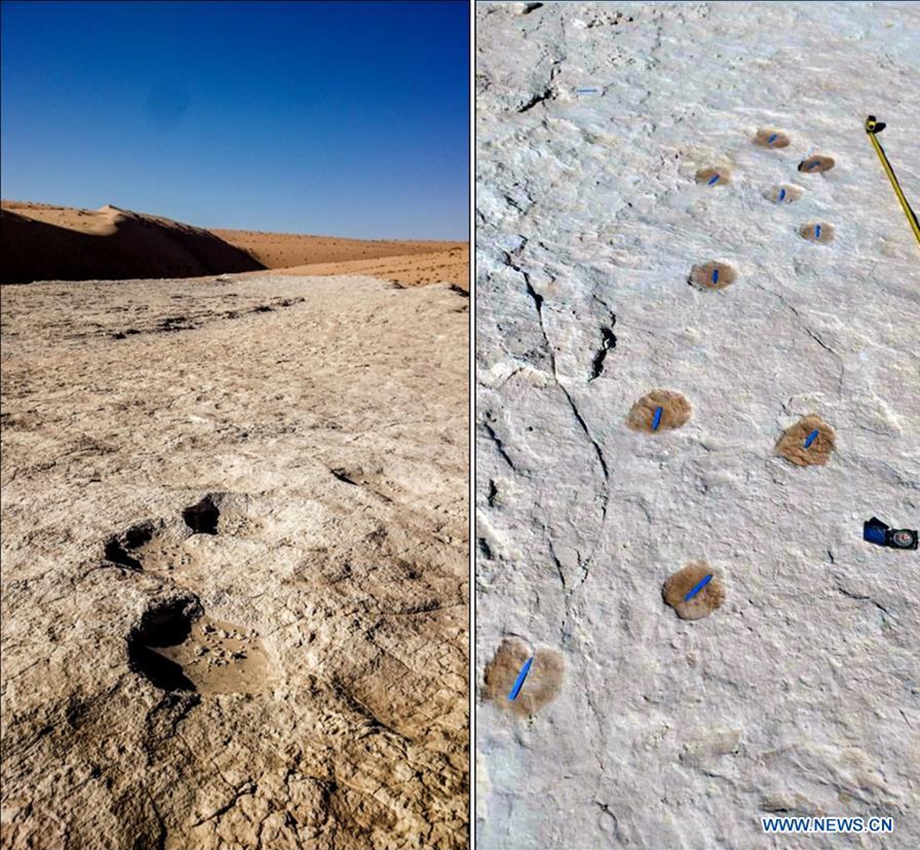China, Saudi Arabia join forces to seek breakthrough in geochemical exploration in mineral-rich Arabian Shield area
By Global Times Source: Published: 2020/10/19 16:07:30

Undated combination file photo shows human and animal footprints found in Tabuk, Saudi Arabia. Saudi Arabia's Heritage Commission announced on Wednesday the discovery of ancient human and animal footprints dating back more than 120,000 years in Tabuk in northern Saudi Arabia. Jasir Alherbish, head of the Heritage Commission, said during a press conference in capital Riyadh that the archaeological discovery in Tabuk, which represents the first scientific evidence of human life on the Arabian Peninsula, was made by a joint team of Saudi and international archaeologists. (Saudi Arabia's Heritage Commission/Handout via Xinhua)
China Geological Survey signed a geochemical exploration contract worth 375 million yuan ($56 million) with Saudi Arabia on Sunday, making it the largest international geological survey project ever awarded to China through international bidding, CCTV News reported.
According to the contract, China Geological Survey will conduct a 1:250,000 regional geochemical survey within the 540,000 square kilometers of Saudi Arabia's shield area, collecting 90,000 samples of stream sediments and 10,000 samples of heavy minerals.
High-precision instruments will be used to detect high-quality data on the 76 chemical elements in the samples, delineating the target areas for prospecting mines.
The project will provide a scientific basis for the mineralization potential and prospect evaluation of Saudi Arabia's shield area, which could help the country achieve breakthroughs in the mining industry.
China will also share its knowledge and experience in geochemistry research, providing technical training including field sample collection, laboratory analysis, data statistics, GIS mapping, database construction, and results interpretation, thepaper.cn reported on Monday.
China Geological Survey revealed that several other institutes from France, South Africa and the UK also participated in the bidding.
The successful bid for the project has once again demonstrated the widespread recognition from the international community of China's research and study in geochemistry, thepaper.cn reported.
Thanks to the enriched mineral resources in the country and investment inflows over the years, Saudi Arabia has made ambitious plans for its mining industry, observers said, according to a report by thepaper.cn.
Apart from the wide variety of minerals and metals in the country, Saudi's policymakers have introduced tax incentives and preferences in legislation that provide easy access to mining licenses and a high-quality workforce, paving the way for mining to become the country's third largest pillar industry by 2030, observers noted.
It will also provide tens of thousands of job opportunities in less developed areas, in addition to a surge in the country's GDP.
Global Times
RELATED ARTICLES:
Posted in: